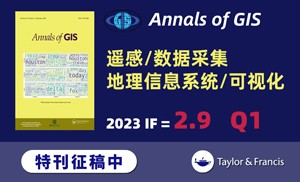当前位置:
X-MOL 学术
›
Critical Horizons
›
论文详情
Our official English website, www.x-mol.net, welcomes your
feedback! (Note: you will need to create a separate account there.)
Examining Honneth’s Positive Theory of Recognition
Critical Horizons ( IF 0.4 ) Pub Date : 2019-07-03 , DOI: 10.1080/14409917.2019.1644810 Kristina Lepold 1
Critical Horizons ( IF 0.4 ) Pub Date : 2019-07-03 , DOI: 10.1080/14409917.2019.1644810 Kristina Lepold 1
Affiliation
ABSTRACT In this article I examine Axel Honneth’s positive theory of recognition. While commentators agree that Honneth’s theory qualifies as a positive theory of recognition, I believe that the deeper reason for why this is an apt characterisation is not yet fully understood. I argue that, instead of considering only what it is to recognise another person and what it means for a person to be recognised, we need to focus our attention on how Honneth pictures the practice of recognition as a whole, which according to him works to make societies into places of greater freedom. This conception of recognition as a freedom-enhancing practice is supposed to provide a solution to a key problem of Frankfurt School critical theory, namely of how to determine the emancipatory practice in which critical theory is rooted, which becomes apparent as soon as one turns to the context in which Honneth originally develops his theory of recognition. At the end of the article, I offer a few reasons for doubting the overly positive picture of the practice of recognition that Honneth provides us with.
中文翻译:

审查霍内斯的肯定认识理论
摘要在本文中,我研究了Axel Honneth的积极认可理论。尽管评论家同意霍内斯的理论可以看作是一种积极的认可理论,但我认为,尚不恰当地解释其为何如此恰当。我认为,我们不仅要考虑承认另一个人的含义以及对一个人的认可的意义,我们还应将注意力集中在霍尼思如何描绘整体的认可实践上,据他介绍,这一做法对使社会进入更大自由的地方。这种承认为自由实践的概念旨在为法兰克福学派批判理论的关键问题提供解决方案,即如何确定根植于批判理论的解放实践,一旦人们转向霍内斯最初发展其认知理论的背景,这一点就变得显而易见。在文章的最后,我提供了一些理由来质疑霍内斯为我们提供的认可实践的过分积极的印象。
更新日期:2019-07-03
中文翻译:

审查霍内斯的肯定认识理论
摘要在本文中,我研究了Axel Honneth的积极认可理论。尽管评论家同意霍内斯的理论可以看作是一种积极的认可理论,但我认为,尚不恰当地解释其为何如此恰当。我认为,我们不仅要考虑承认另一个人的含义以及对一个人的认可的意义,我们还应将注意力集中在霍尼思如何描绘整体的认可实践上,据他介绍,这一做法对使社会进入更大自由的地方。这种承认为自由实践的概念旨在为法兰克福学派批判理论的关键问题提供解决方案,即如何确定根植于批判理论的解放实践,一旦人们转向霍内斯最初发展其认知理论的背景,这一点就变得显而易见。在文章的最后,我提供了一些理由来质疑霍内斯为我们提供的认可实践的过分积极的印象。









































 京公网安备 11010802027423号
京公网安备 11010802027423号